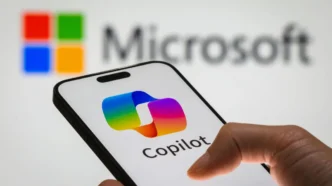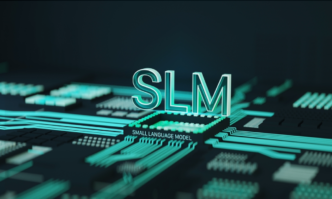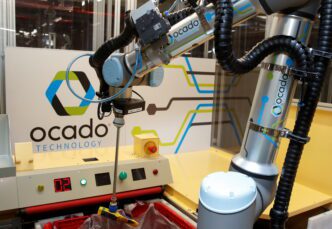As organisations worldwide shift from experimental AI pilots to integrated enterprise systems, global and Microsoft AI adoption is surging. According to recent industry research, AI implementation has grown by 47% since 2023. With generative AI (Gen AI) leading the charge. Yet, many businesses still face challenges in turning innovation into impact.
A report by the World Economic Forum reveals that while 78% of large enterprises have initiated AI projects. Only 31% have seen significant business outcomes from these efforts. Compounding the challenge is a constantly evolving regulatory landscape. Especially with the EU AI Act now fully implemented and similar laws moving forward in North America and the Asia-Pacific.
To help organisations bridge the strategy gap, Microsoft has released its latest AI Decision Brief. Offering executive-level insights and best practices for deploying Gen AI at scale. Created in collaboration with Microsoft’s Chief AI Officers, the guide aims to help companies generate consistent value across industries by aligning AI with strategic goals.
Microsoft’s 5 Pillars for Scaling Gen AI Impact
Microsoft’s report emphasizes that successful Gen AI deployment begins with a clear vision — one that supports the organisation’s top business priorities.
To that end, it outlines five core value drivers that businesses should follow to implement Gen AI solutions that are measurable, scalable, and sustainable:
- Define your AI strategy and direction
- Target a top business challenge or opportunity
- Establish AI readiness and governance
- Deploy AI to scale
- Expand AI transformation
“As the real-world impacts of the AI platform shift take shape, organisations will need to learn, adapt and refine their approaches,” the Brief notes. “Collaboration, partnership and shared learning will be vital for everyone.”
Microsoft’s broader vision is to empower every person and organisation on the planet “to do more” through AI-powered tools and strategic frameworks.
Microsoft 365 Copilot: AI Driving Real Results Across Industries
Microsoft’s own Gen AI solution, Microsoft 365 Copilot, has become a powerful example of how AI can streamline operations, automate workflows, and enhance productivity — all while protecting enterprise data.
Here are some real-world examples of how Microsoft Copilot is transforming industries:
Dow
Chemical manufacturer Dow adopted Microsoft 365 Copilot to optimise supply chain operations and employee productivity. Within 12 months of deployment, the company reported significant cost savings in shipping and more streamlined internal workflows.
BCI (British Columbia Investment Management Corporation)
BCI, one of Canada’s largest investment firms, is using Microsoft 365 Copilot alongside Azure OpenAI Service to maintain regulatory compliance while automating repetitive tasks. This shift has allowed employees to focus more on strategic planning and high-value initiatives.
CTC (Canadian Tire Corporation)
Retail giant CTC uses Microsoft’s Azure AI services to improve both employee experience and customer engagement. With conversational AI tools like its in-house assistant CeeTee, CTC offers personalised shopping experiences and optimises product planning using Azure OpenAI Service and Data Lake Storage.
Teladoc Health
Virtual healthcare provider Teladoc is leveraging Microsoft Copilot to automate daily processes, streamline workflows, and speed up onboarding. “Copilot saves us thousands of hours across the enterprise,” says Eddie Swafford, VP of Operations at Teladoc Health. “It’s like a personal assistant that never sleeps — freeing us to lead more effectively.”
The integration of Power Automate and Power BI also enables faster issue categorisation and resolution. “With Copilot, we don’t have to train everyone from scratch,” adds Emily Grimm, Supply Chain Manager at Teladoc. “It helps newer employees get up to speed 20% faster and supports workflow automation right out of the gate.”
What’s Next for Enterprise AI?
Microsoft’s latest AI initiatives point to a new era of context-aware, human-centric AI, where tools like Copilot don’t just automate — they collaborate. As businesses seek more predictable ROI, scalable governance, and seamless integration, decision frameworks like the AI Decision Brief offer much-needed direction.
From productivity and compliance to customer experience and supply chain optimization, Gen AI is unlocking use cases across every sector. However, long-term success will require organisations to align their AI strategy with core business outcomes, adapt to regulatory shifts, and invest in cross-functional education.
The AI age is no longer on the horizon — it’s happening now. And Microsoft aims to help businesses lead it, not just follow.













